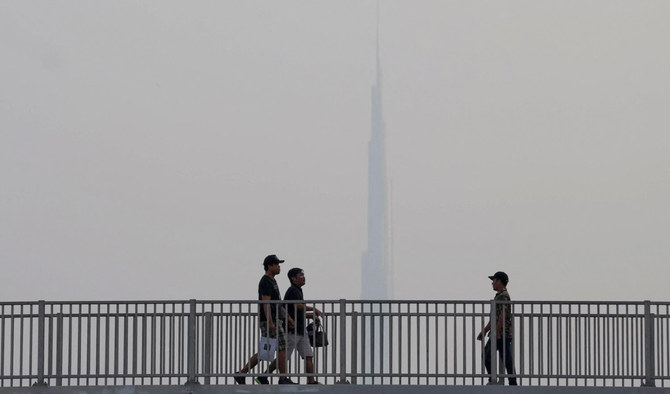KARACHI: A local consultancy firm has taken an initiative to hold an awareness conference in the United Arab Emirates (UAE) in September to persuade overseas Pakistanis to utilize banking channels while sending money to their home country, confirmed its top official on Monday.
Dellsons Associates, a Karachi-based financial advisory company, will organize the event in collaboration with Pakistan’s diplomatic mission in the UAE and some of the leading commercial banks.
Remittances from overseas Pakistanis constitute a major source of earning for the country, though they have taken a substantial nosedive more recently.
“We plan to sensitize Pakistani diaspora about the importance of remitting their hard-earned money through official channels which have witnessed a drop in recent years,” Tufail Ahmed Khan, the CEO of the firm, told Arab News.
Khan informed that The Pakistan Remittance Summit will be held in Dubai on September 28, 2023, with the help of the Pakistan embassy and major commercial banks.
The South Asian country received $14.28 billion from Gulf Cooperation Council (GCC) countries in the last fiscal year as compared to $17.22 billion immediately before that. This accounted for a decline of 17 percent or $2.94 billion, according to the official statistics compiled by the State Bank of Pakistan (SBP).
More than half of the country’s remittances were sourced from GCC states during the outgoing financial year, with Saudi Arabia making the top contribution of $6.44 billion.
Pakistan has exported over 1.7 million workers to GCC, including one million to Saudi Arabia and 331,340 to the UAE between 2020 to July 2023, according to the Pakistan Bureau of Emigration & Overseas Employment.
Khan said the remittance inflow did not match the number of Pakistanis exported to the region during last couple of years.
“If these over a million Pakistanis merely remit an average of $100, which is around Rs30,000, per month through banking channels, the country can easily receive $100 million per month and $1.2 billion per year,” he pointed out.
The Dellsons Associates CEO added there was a huge potential above $100 million per month since an average Pakistani worker was earning 2,000 Dirham and Riyal per month.
He maintained the remittances from overseas Pakistanis could easily increase by an additional $5 billion per year, considering the upsurge in manpower exports to these countries.
Pakistan’s major chunk of remittance inflows is channelized through unofficial Hundi and Hawala networks which offer comparatively higher exchange rates and continue to thrive.
Based on the element of social trust, Hawala is an alternative remittance channel that exists outside of traditional banking system. In the Hundi system, an order is written by a person directing another to pay a certain sum of money to a person named in the order. The money received through these methods is not counted toward the country’s official remittances.
Khan acknowledged that unofficial channels were offering higher rates which are attractive for overseas workers, but he also hoped the event in Dubai would help create awareness about the importance of official channels and risks associated with the unofficial mechanisms.
















